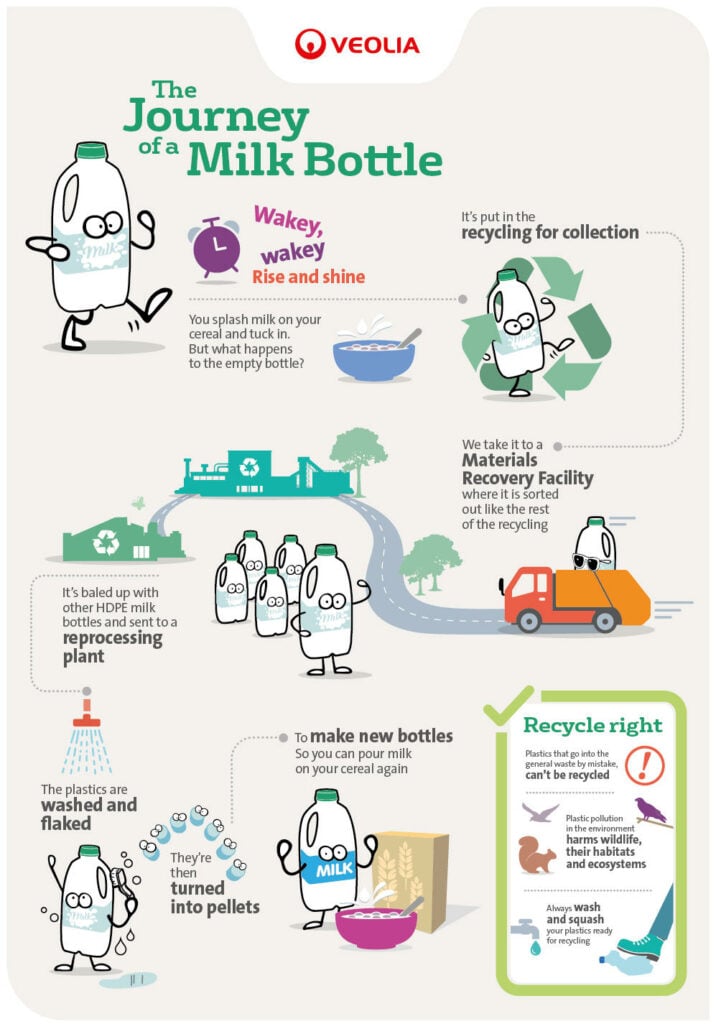What is a circular economy?
Looking beyond the current take-make-waste extractive industrial model, a circular economy aims to redefine growth, focusing on positive society-wide benefits. It entails gradually decoupling economic activity from the consumption of finite resources and designing waste out of the system. Underpinned by a transition to renewable energy sources, the circular model builds economic, natural, and social capital. It is based on three principles:
- Design out waste and pollution
- Keep products and materials in use
- Regenerate natural systems
For more information on this topic please visit this link to the Ellen MacArthur Foundation.
Circular Economy Week London takes place between 14th-18th June 2021
This event, also known as #CEweekLDN, is a week-long event that promotes ways that cities can reduce their environmental and climate impacts by making the way we use our resources more sustainable and efficient.
Hosted by London’s circular economy partner ReLondon, the aim of the week is to showcase positive initiatives and encourage practices that will accelerate our city’s transition to a circular economy.
To celebrate the great work done by Circular Economy Week, we are sharing some information about the event and providing some helpful tips around reducing your carbon footprint.
What is happening at Circular Economy Week 2021?
The theme of the fourth annual Circular Economy Week in London is “The stuff revolution”, with a focus on using the circular economy to combat climate change. With the UK having set a goal of achieving net-zero carbon emissions by 2050, it’s important that every business does their bit in order to avoid serious long-term environmental consequences.
How can Westminster businesses adopt a circular approach to waste management?
A key principle of the circular economy is the idea of eliminating waste by reusing, recycling and repairing items. By minimising the use of raw materials and avoiding the disposal of items that can still be useful, a closed-loop system is created. This keeps resources in use rather than allowing them to go to waste.
You can adopt some of these circular economy approaches to improve your waste management practices and reduce your carbon footprint, such as:
Considering the need to buy items in the first place.
Is it essential you purchase something new or can refurbished or reconditioned items be used instead? Only buy what you really need, preferably in bulk, and avoid duplicating orders.
Opt for low-waste products that do not come with as much packaging, even better when you buy unpackaged or loose items when possible.
Download our waste reduction guide for further tips.
Reusing items rather than throwing them away.
A lot of what we throw away actually has plenty of life left in it. Others are happy to take them off your hands and use them again. A number of items can also easily be reused multiple times. See our recycling guide for more ways to reuse items rather than throwing them away.
Segregating waste for recycling.
Many items can be recycled which helps conserve resources and energy. Commercial Waste Services offers high-quality recycling collections that help reduce the burden on the environment and your wallet. What we collect for recycling from you is turned into new raw resources which avoids the need to extract them from virgin sources.
It takes all our efforts to work towards a circular economy and fight climate change. Watch our infographic below to follow the recycling journey of a plastic milk bottle and find out how, in partnership with Veolia, we close the loop on plastic recycling in Westminster.

How can Commercial Waste Services support my business?
Starting with our complimentary waste audit which will help identify the reduction and recycling potential of the waste you produce. We are at hand to help you implement the recommended services which include staff training as well as a range of posters, stickers and internal bins. We will also provide you with performance reports which will allow you to track improvements.
For more information on how to manage your waste more sustainably, please also have a look at our online resources:
- Our guide to plastic waste gives suggestions on how you can reduce your plastic waste.
- Our guide to commercial waste recycling helps you to manage your waste more sustainably while also reducing costs.
- We also provide detailed information about how you can improve your waste management to minimise climate change here.
- In our ultimate guide to sustainability, you can learn how to make your business more environmentally friendly.





.jpg?width=50)
